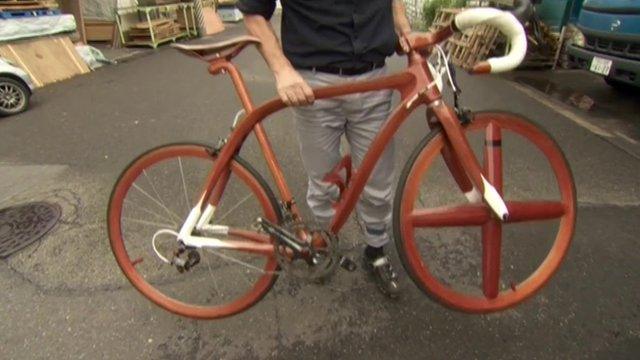Akubra hats: Keeping it in the family
- Published
Akubra hats, as seen in the Crocodile Dundee films, are still made by the same family after more than a century
Walking on to the floor of the Akubra hat factory in the town of Kempsey in New South Wales is like stepping back in time.
The heavy machines whirring and buzzing look like they should be in a museum - and at 100 years of age, some of them could be.
Akubra has been run by one family for five generations and their handsome felt hats, which are made with rabbit fur, are very much a part of Australia's national identity.
"We've survived depressions, world wars and global financial crises," says Stephen Keir IV, who took over running the business from his father a few years ago.
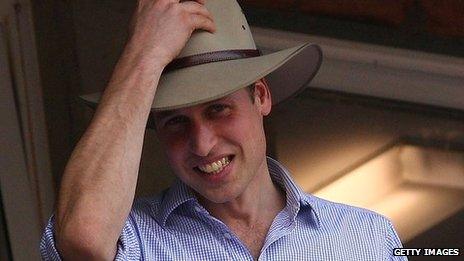
The Duke of Cambridge donned an Akubra on a 2011 trip to Australia
Now one of the only people in the world who can make an Akubra hat from start to finish, Stephen says the business is in his blood.
"There was no pressure for me to come into the business - I don't know how my sisters felt about it, but it was left up to me, whatever I wanted to do," he says.
"So I just decided in 1990 that it was time to come home and move into the business. And in all fairness, in our family, it's pretty much all we know."
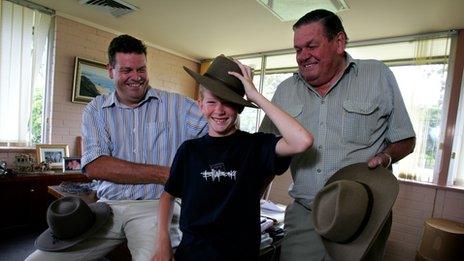
Three generations: Stephen Keir IV, Stephen Keir V and Stephen Keir III
In the beginning
It was Stephen's great-great grandfather Benjamin Dunkerly who started the firm.
With a knack for machinery and hat making, he left England for Tasmania in 1874, and before long saw a business opportunity in Australia's rabbit problem.
The vermin compete with domestic livestock for food and their rapid spread at the time was wreaking havoc for farmers, prompting culling efforts.
Benjamin meanwhile invented a machine that could remove the fur used for making felt from a rabbit skin - a process that had been until then managed by hand. The machine made the hat-making process faster and easier and helped Stephen build the beginnings of a busy hat business.
By 1905 he had hired a young Englishman with millinery prowess of his own, Stephen Keir I.
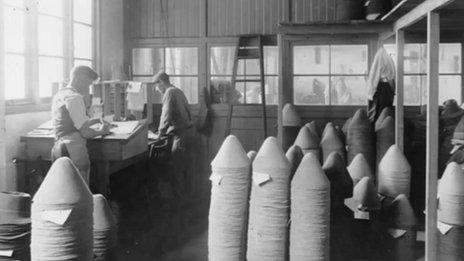
The Keir family says the business is a long part of Australia's history
That first Stephen eventually married Benjamin's daughter, Ada, and together they started a succession of Keirs at Akubra's helm.
Synonymous with Australia
Akubra hats have been given as gifts to visiting dignitaries, worn by Australia's Olympians and military, as well as Hollywood stars.
At Strand Hatters - a well-known hat shop in Sydney - Akubras are the most popular item on the shelves.
The store's manager is milliner Robert Carroll, who also designs hats for Akubra. He says the brand makes up more than half of his shop sales and that its popularity is growing.
"It's never been as strong and it's that outback, Aussie-looking hat that people are after as well," he explains.
.jpg)
Akubra has come a long way over the years; today exports are growing rapidly
Customer Oliver King has brought his Akubra in to get it steamed and reshaped. He inherited the hat, and says Akubras are as popular today as they were 100 years ago.
"It's part of Australia's heritage, and I guess it makes you feel a bit patriotic to wear one," he says.
Changing track
After the death of their father, Stephen IV and his two sisters, Nikki McLeod and Stacey McIntyre, decided to take co-ownership of the business, which Nikki says was a big change.
"The company was in sole ownership with my father, but now the three of us own it, so it's a whole different scenario," she explains.
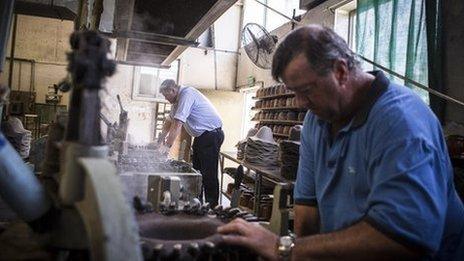
Stephen IV says as the business continues to expand he will need more help
The three siblings have regular meetings to discuss the future of the business and about who will take over the leadership of the company, including discussions over their own children.
"It has to be the best person for the job," Stephen says. "It's as simple as that.
"And if there's someone that wants to be here, or if there are two that want to be here, and one's not as qualified as the other, then that one misses out.
"And if that's one of my kids - that's going to be a hard decision. But it's a decision that we've made as a group and that's what we're going to do."
'A great honour'
The next generation is eager to carry on the tradition of running the family firm.
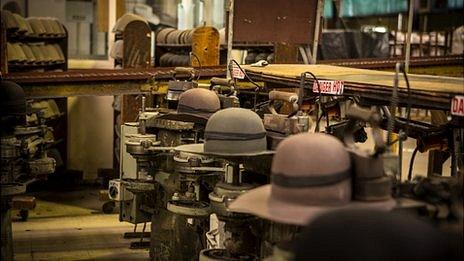
It takes over a month to make one Akubra
"We've grown up with it being a big part of our lives," says Nikki's son, Hamish McLeod, who is currently undertaking a business degree.
"And I'm sure all of the cousins and grandkids are interested in being involved with the business, to help out the family, and grow it into bigger and better things."
His cousin, Stephen Keir V, Stephen IV's eldest son, starts university next year, but has spent time working in the factory, learning from his father.
"The legacy does make us want to continue making the hats," he says. "Carrying that on would be a great honour, I think, for any of the grandchildren in the Keir family," he says.
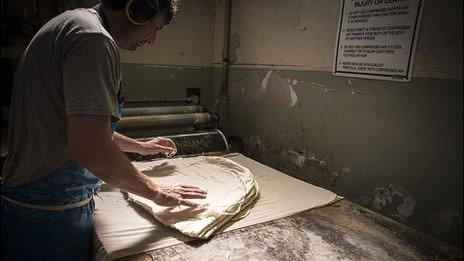
Two hundred pairs of hands will touch each hat before it is finished
Stephen IV says the public also wants the company to keep true to its roots. "The most amount of pressure I get is an expectation from the community to keep this business as an Australian-owned, family-run business," he says.
Future plans
Akubra's exports are growing rapidly. In recent years, Asia has emerged as a big market for the firm, with Tibet becoming their biggest overseas customer.
The company has also ventured into different products with the launch of a new line of leather luggage and accessories.
"I'd like to see us expand into areas we never thought we'd be expanding into, and be 10 times bigger than we are now," says Stephen IV.
"I'm not capable of that by myself though. I'd need outside help, so maybe one of the kids will be that person."
- Published11 July 2014
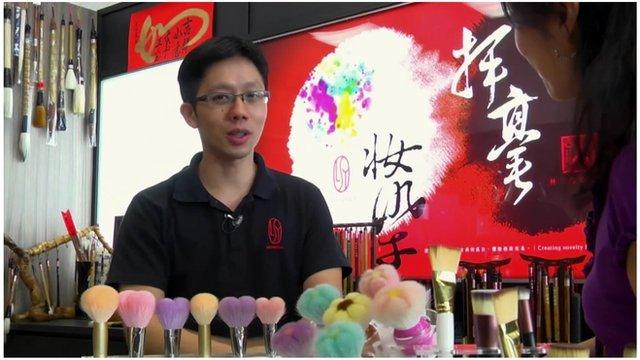
- Published2 July 2014
